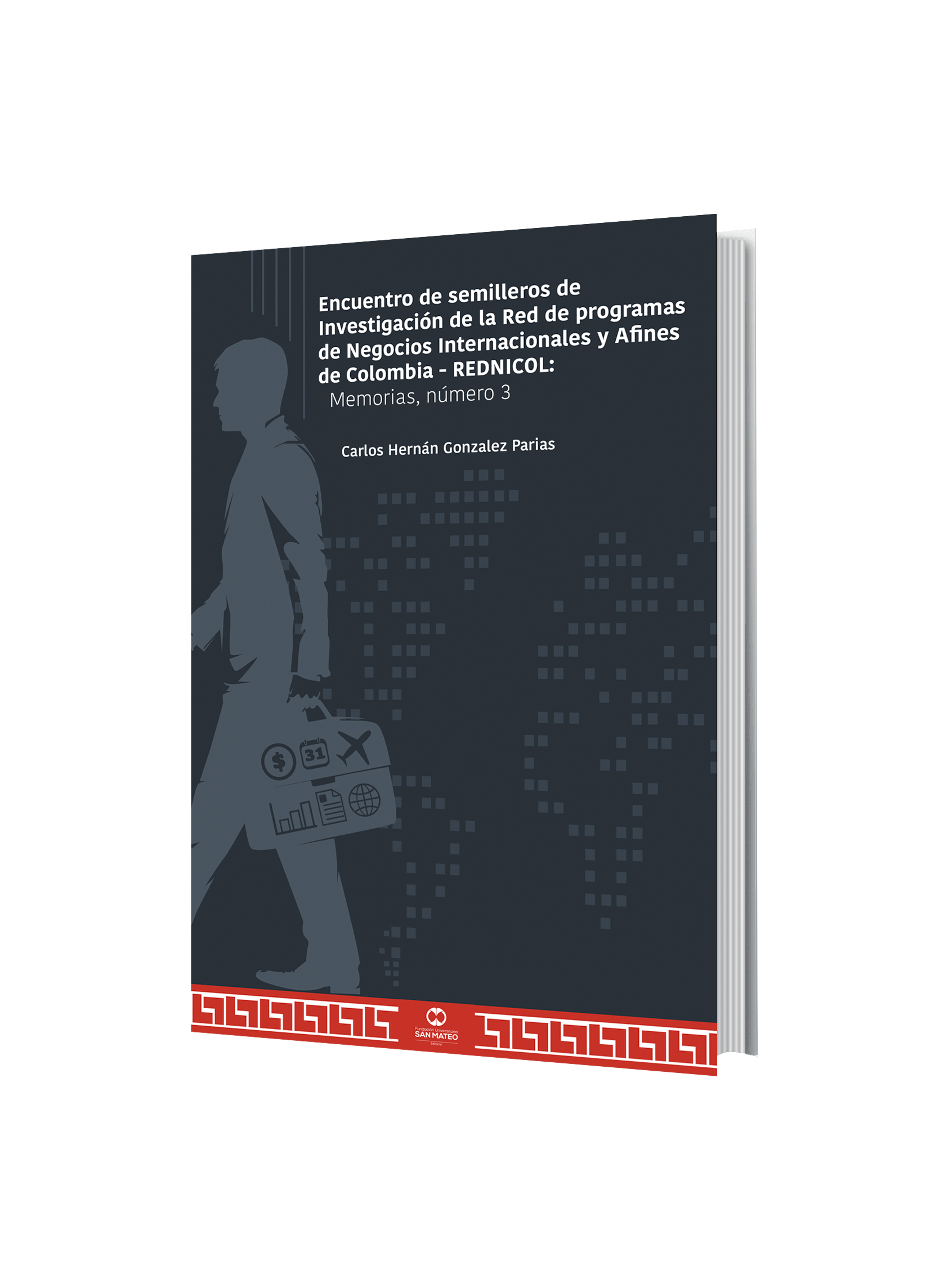Resumen
El objetivo es realizar un mapeo científico de la certificación Halal en mercados musulmanes, incluyendo estrategias de marketing islámico Halal, para poder llegar a los mercados musulmanes y no musulmanes, la metodología utilizada es un análisis cienciométrico, basado en técnicas de revisión bibliográfica, los registros utilizados fueron tomados de Scopus. Se estudiaron cuatro variables: países, autores, instituciones y revistas más relevantes, permitiendo realizar una red de cocitaciones y de autores. Los hallazgos parciales que arroja la investigación se relacionan con la certificación Halal como una industria que está inmersa en varios sectores como: alimentos,
etiquetas, finanzas, bancarización, negocios, logística, moda, turismo, cosméticos, marketing; incluyendo el carácter religioso. Estos elementos les permiten a los países no musulmanes la adopción de esta certificación, si desean ingresar a un mercado que sigue creciendo de manera exponencial, con poder adquisitivo en ascenso y con exigencias de calidad y trazabilidad en todo el proceso Halal.
Citas
Achmad Perguna, L., Yudha Irawan, L. Kurniawati, E., Triharini, S., Syah Pahlevi, D. & Dwi Febrianto, A. (2021). Halal for all: Geo spatial tourism of halal food stalls in Muslim minority tourist destinations. GeoJournal of Tourism and Geosites, 36(2spl), 715-720.
Ahmad, F. (2012). Graduating towards marriage? Attitudes towards marriage and relationships among university-educated British Muslim women. Culture and Religion, 13(2), 193-210.
Ahmed, A., Lee, K. S., Bukhsh, A., Al-Worafi, Y. M., Sarker, M. M. R., Ming, L. C. & Khan, T. M. (2018). Outbreak of vaccine-preventable diseases in Muslim majority countries. Journal of Infection and Public Health, 11(2), 153-155.
Boereboom, A., Sheikh, M., Islam, T., Achirimbi, E. & Vriesekoop, F. (2022). Brits and British Muslims and their perceptions of cultured meat: How big is their willingness to purchase? Food Frontiers, 3(3), 529-540.
Brown, T. G. (2021). The Muslims of “all under heaven.” Archives de Sciences Sociales Des Religions, 193, 79-106.
Bukhari, S. F. H., Woodside, F. M., Hassan, R., Hussain, S. & Khurram, S. (2022). Exploring the motives behind the purchase of western imported food products. A phenomenological study from a Muslim-dominated region. Journal of Islamic Marketing, 13(2), 481-507.
Carrasco, C., Pérez-Palacios, T., Luengo, L. M., Gómez, S., Fajardo, M., Gómez, M. de L. Á. & Rodríguez, A. B. (2022). Nutritional quality and physiological effects of halal meat: A pilot study in non-Muslim consumers. Food Bioscience, 49(101935).
Challenges faced by non-Muslim transporter in adopting halal logistics certificate. (2020). Journal of Critical Reviews, 7(08). https://doi.org/10.31838/jcr.07.08.29
Chong, S. C., Yeow, C. C., Low, C. W., Mah, P. Y. & Tung, D. T. (2022). Non-Muslim Malaysians’ purchase intention towards halal products. Journal of Islamic Marketing, 13(8), 1751-1762.
Ding, E., Wei, C. & Liu, C. (2022). Religion versus social relationships: how Chinese Muslims deal with Halal taboos in social eating. Food, Culture & Society, 1-17.
Faidah, M., Rusmanto, H., Rahmawati, L., Kusstianti, N. & Wijayanti, F. (2021). Exploring Muslim Tourist Needs at Halal Spa Facilities to Support Indonesia’s Sharia Tourism. The International Journal of Religious Tourism and Pilgrimage, 9(1), 118-131.
Hanafiah, M. H., Maek, A. A. A. & Zahari, M. S. M. (2021). Muslim Tourist Behaviour and Intention to Revisit non- Muslim Countries: The Role of Muslim-Friendly Tourism (MFT) Attributes. International Journal of Religious Tourism and Pilgrimage, 9(1), 14.
Kapustina, E. & Капустина, Е. (2016). The Market of Muslim Goods and Services in Dagestan: Practices of Consumption and Public Debates. In Kapustina, Ekaterina 34(2), 176-202. https://doi.org/10.22394/2073-7203-2016-34-2-176-202
Muslim markets. (2020). Strategic Direction, 36(5), 17-18.
Nugraha, W. S., Chen, D. & Yang, S.-H. (2022). The effect of a Halal label and label size on purchasing intent for non-Muslim consumers. Journal of Retailing and Consumer Services, 65(102873).
Rahman, M. K., Rana, M. S., Ismail, M. N., Muhammad, M. Z., Hoque, M. N. & Jalil, M. A. (2022). Does the perception of halal tourism destination matter for non-Muslim tourists’ WOM? The moderating role of religious faith. International Journal of Tourism Cities, 8(2), 478-496.
Rahman, R. A., Zahari, M. S. M., Hanafiah, M. H. & Mamat, M. N. (2022). The influence of knowledge on wholesomeness, labelling and trust toward Muslim consumers purchase behaviour of Syubhah semi-processed food products. Journal of Islamic Marketing, 13(10), 2009-2027.
Ramli, M. A., Abd Razak, M. A. & Jaafar, M. H. (2021). Understanding non-Muslims’ reluctance to halal food: a systematic review. Journal of Islamic Marketing, ahead-of-print (ahead-of-print). https://doi.org/10.1108/jima-05-2021-0134
Septiarini, D. F., Ratnasari, R. T., Salleh, M. C. M., Herianingrum, S. & Sedianingsih, S. (2022). Drivers of behavioral intention among non-Muslims toward halal cosmetics: evidence from Indonesia, Malaysia, and Singapore. Journal of Islamic Accounting and Business Research. https://doi.org/10.1108/jiabr-02-2021-0064
Wilson, J. A. J., Belk, R. W., Bamossy, G. J., Sandikci, Ö., Kartajaya, H., Sobh, R., Liu, J. & Scott, L. (2013). Crescent marketing, Muslim geographies and brand Islam. Journal of Islamic Marketing, 4(1), 22-50.
Yen, H.-P., Chang, J.-W., Ho, K.-C. & Hung, H.-K. (2022). Foreign Muslim workers’ perspectives of the basic needs of Muslim-friendly tourist services: An empirical analysis of a non-Muslim destination. Security and Communication Networks, 1-17.

Esta obra está bajo una licencia internacional Creative Commons Atribución-NoComercial-SinDerivadas 4.0.
Derechos de autor 2025 Fundación Universitaria San Mateo


